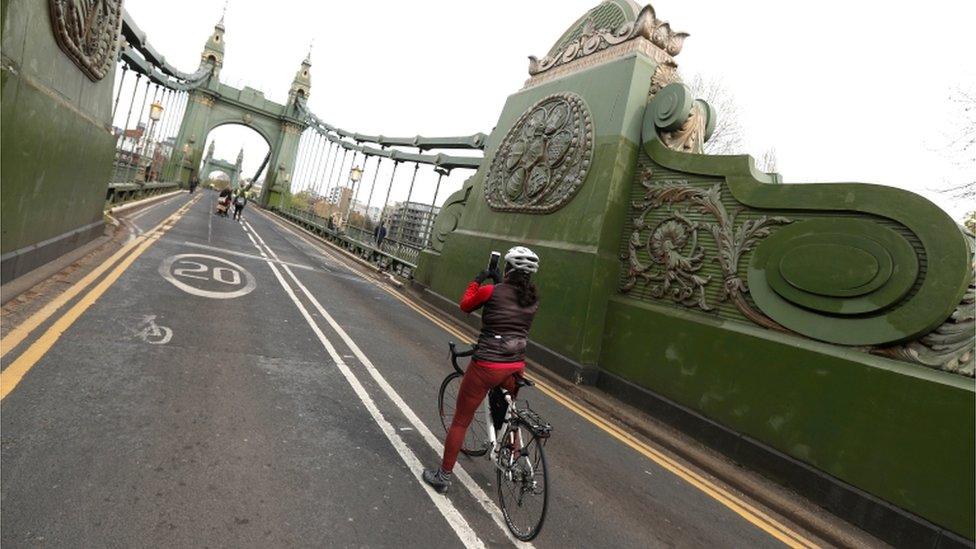Hammersmith Bridge: Charges could be introduced under private investor plan
- Published
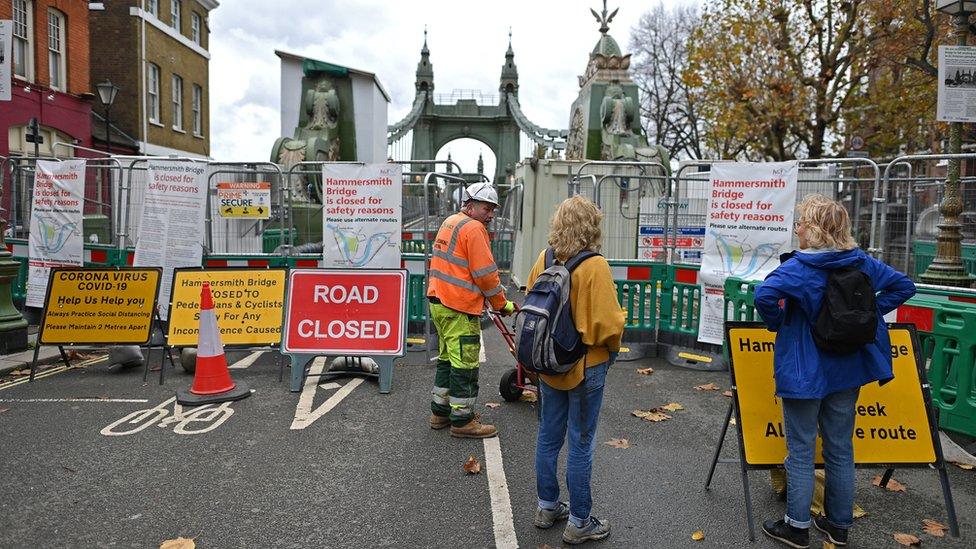
Motorists have not been able to use the bridge since April 2019
Drivers could be charged to cross Hammersmith Bridge, under new proposals set out by the council.
Cracks in the cast iron pedestals closed the 136-year-old bridge in west London to traffic in August 2020.
Although the bridge reopened to walkers and cyclists last July, work costing up to £130m is still needed to reopen it.
Hammersmith and Fulham Council hopes private investors will fund the work and said a toll was the "only way" for it to be completed.
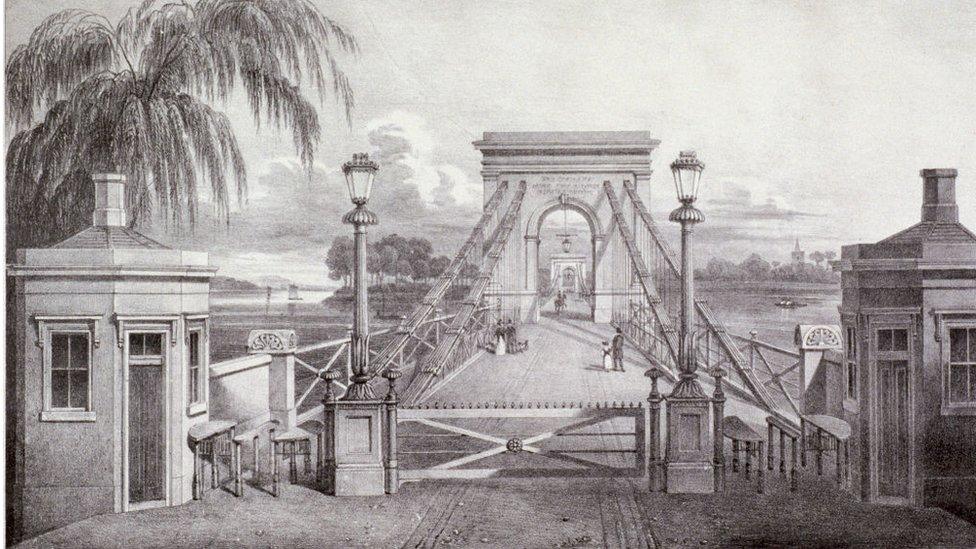
The previous Hammersmith Bridge opened in 1827 and was replaced later in the century
A tender notice on the government's website said the council was looking for expressions of interest "on the proposed commercial structures and risk allocation".
The council is seeking contractors, equity investors and debt providers to consider options including a design, build, finance and maintain (DBFM) model, a design and build model, or other "concession-style models".
A Hammersmith and Fulham Council spokesman said the Victorian structure "is one of the world's oldest suspension bridges which is why it is one of Britain's most expensive to repair".
"So far, the residents of Hammersmith and Fulham have spent millions to make it safe," he said.
The spokesman added: "The government has decreed that Hammersmith and Fulham must pay an unprecedentedly high 33% of the total cost.
"The only way that can be met is with a toll and this has been agreed by all parties."
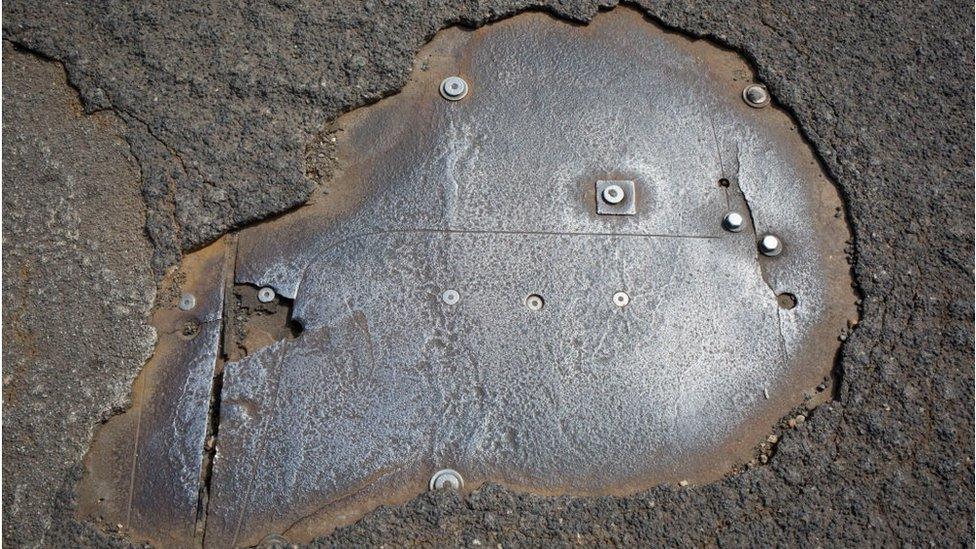
Hammersmith Bridge's damaged road surface, pictured after safety checks, revealed "critical faults"
Sarah Olney, the MP for Richmond Park, said the tender "raises the question of whether a toll will be charged to pay for the costs of the repairs".
Calling for full transparency, the Liberal Democrat said a toll "may impact different user groups and traffic patterns".
She added: "We have not had a meeting of the Hammersmith Bridge Task Force in months, and one is clearly needed to discuss this latest development.
"Full clarity must be given to all residents across south-west London regarding these unanswered questions."
Are London’s bridges deteriorating?
The council estimates it will cost a total of £141m to fully complete the bridge, which includes the initial £8.8m stabilisation project as well as the strengthening work.
The stabilisation project is due to be completed by the end of the year, then strengthening work to reopen the bridge to motor traffic is expected to begin.
The long-term future of the bridge and who should pay for repairs or replacement has been a controversial issue.
The Department for Transport (DfT) previously insisted it would pay no more than a third of the cost of fully repairing the structure.

Follow BBC London on Facebook, external, Twitter , externaland Instagram, external. Send your story ideas to hellobbclondon@bbc.co.uk, external
- Published1 December 2021
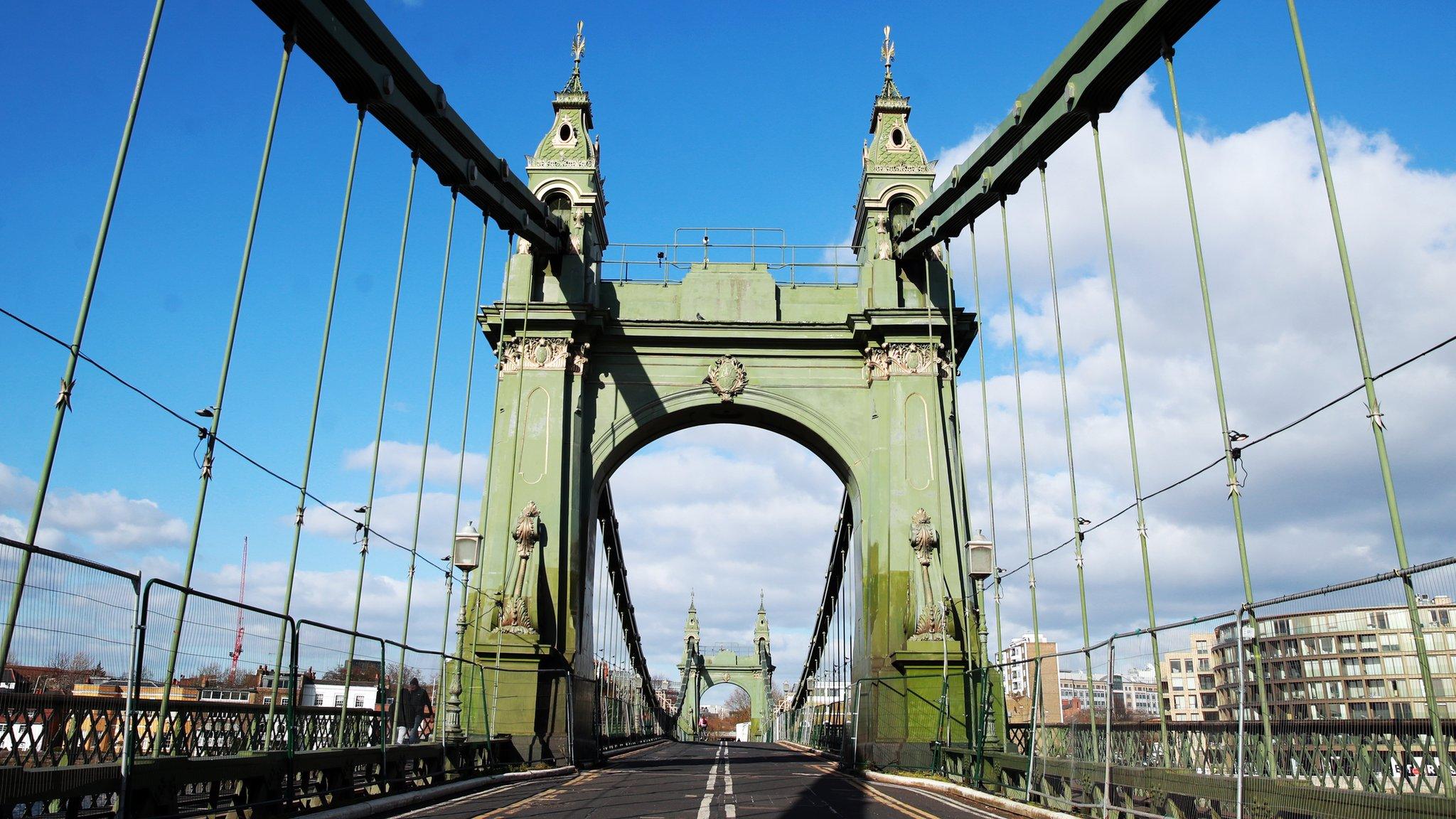
- Published2 June 2021
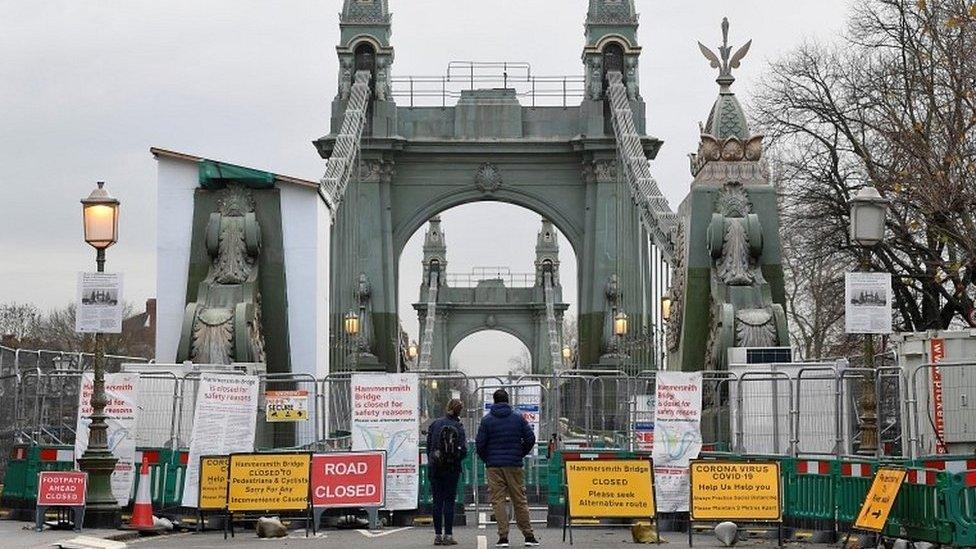
- Published19 March 2021
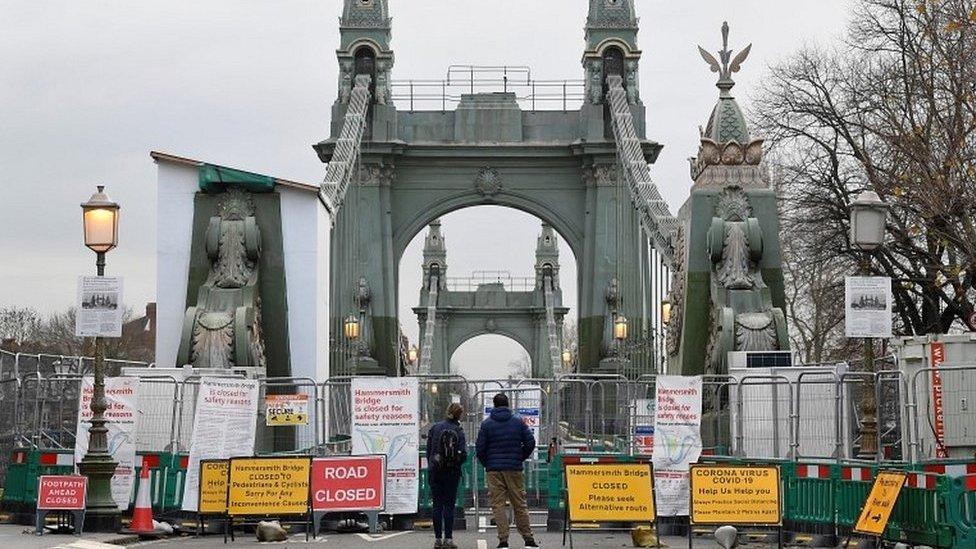
- Published14 February 2021
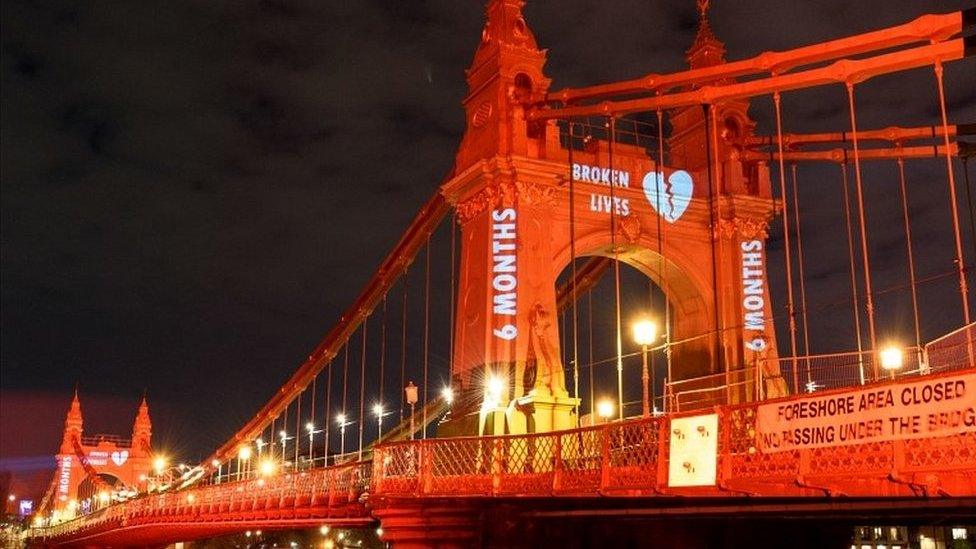
- Published15 December 2020
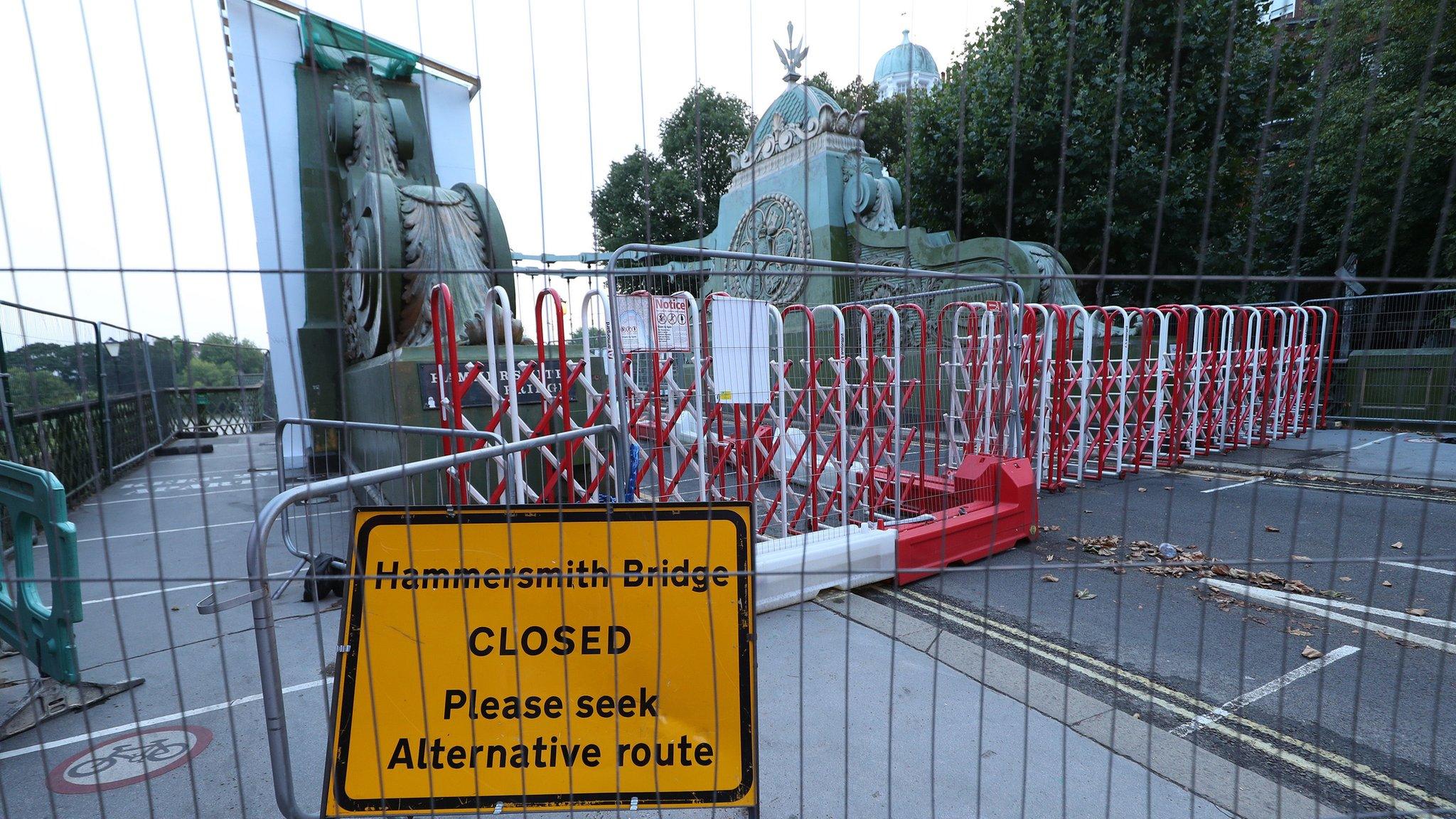
- Published10 December 2020

- Published26 November 2020

- Published13 August 2020
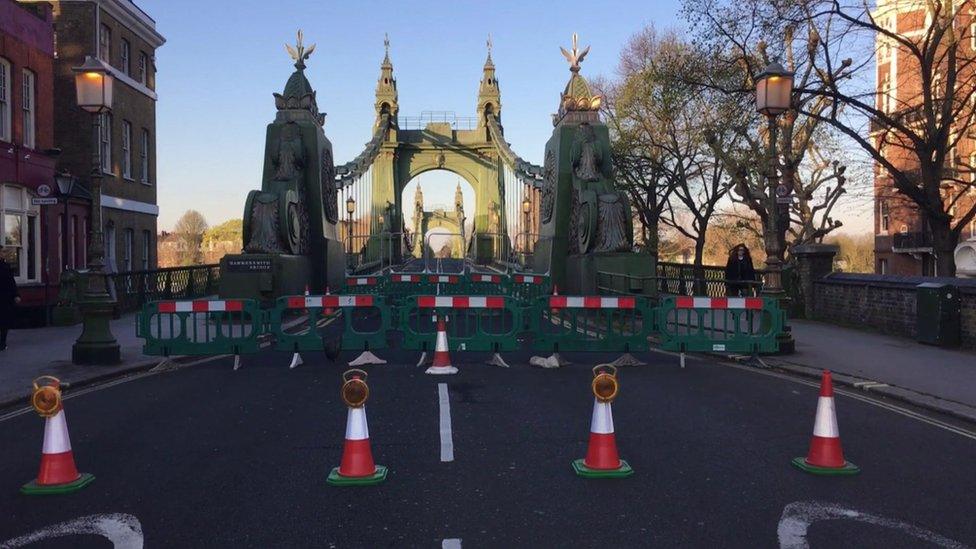
- Published3 September 2019

- Published24 May 2019
